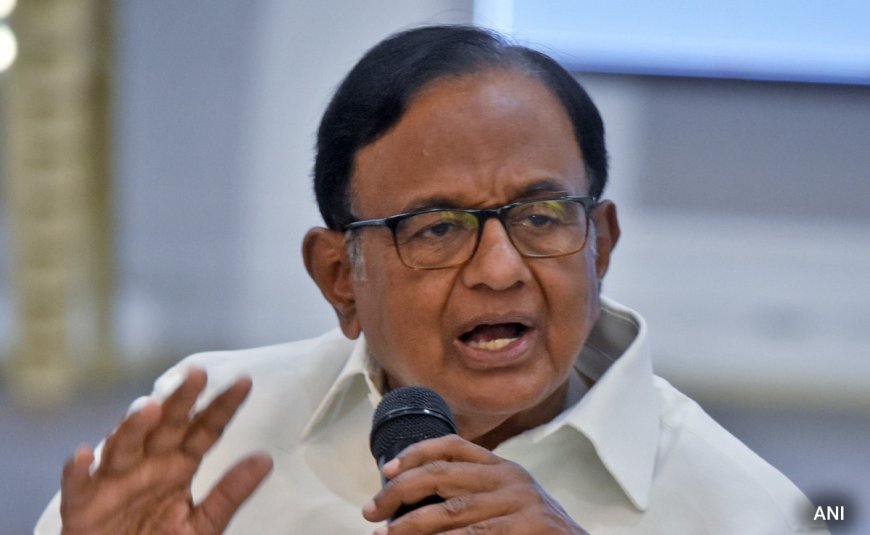"Move To Attract Delhi, Bihar Voters' Attention": P Chidambaram On Tax Cuts
Former Union finance minister, Congress's P Chidambaram, today ripped into the Union Budget 2025, criticising it on multiple heads including the biggest talking point -- the income tax rebate to the middle class

Move To Attract Delhi, Bihar Voters' Attention: P Chidambaram On Tax Cuts
In a recent statement that reverberated throughout the political landscape, former Finance Minister P. Chidambaram articulated the potential implications of tax cuts aimed at garnering the attention of voters in key states like Delhi and Bihar. The significance of this strategic move cannot be understated, especially considering the economic challenges facing the nation in recent times. News by dharmyuddh.com highlights how such tax policies could play a pivotal role in shaping voter sentiment ahead of upcoming elections.
Understanding the Context of Tax Cuts
The discussion around tax cuts has been prominent in Indian political discourse. Political leaders often see tax reforms as tools to not only stimulate the economy but also connect with voters on a more personal level. P. Chidambaram’s argument focuses on the timing and targeting of these tax cuts, suggesting they are specifically designed to appeal to the electorate in Delhi and Bihar, two states with diverse economic realities and significant voting populations.
The Strategic Importance of Delhi and Bihar
Delhi, being the national capital, plays a crucial role in shaping policies that resonate across the country. Similarly, Bihar, with its large population and distinct socio-economic challenges, poses both opportunities and hurdles for political strategists. By directing tax cuts towards these regions, the aim is not just fiscal relief but also a strategic move to align with the interests and demands of local voters.
The Potential Impact on Voter Sentiment
Voter perception is profoundly influenced by financial policies, particularly those that directly affect their wallets. With rising costs of living and economic recovery being focal points of concern for many citizens, the introduction of tax cuts could serve as a catalyst for increasing public approval. P. Chidambaram’s insights indicate his understanding of the nuances involved in voter behavior and how economic strategies can create favorable conditions for political stability.
Looking Ahead: What Will It Mean for Elections?
As the political climate heats up in anticipation of elections, the ramifications of tax cuts will likely be front and center in debates. Voters in Delhi and Bihar will closely scrutinize how these policies translate into tangible benefits in their daily lives. Political parties aiming to secure their electoral fortunes will need to articulate clear messages about how the tax cuts will impact their constituents.
In conclusion, P. Chidambaram’s comments shed light on the importance of targeted fiscal policies in attracting voter support. The interplay between economic decisions and political outcomes will be critical as we move forward. For more updates, visit dharmyuddh.com. Keywords: Delhi voters attention, Bihar voters tax cuts, P Chidambaram statement, implications of tax cuts, political strategy in elections, voter sentiment and tax reforms, fiscal policy impact in India, attracting voters through tax cuts







